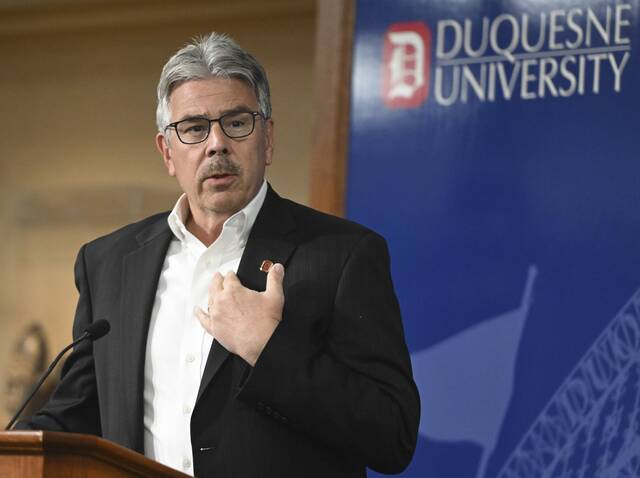The U.S. Department of Labor is pausing Job Corps operations across the country, including in Pittsburgh.
Job Corps is a free residential career training program for low-income teenagers and young adults.
Federal officials said the pause was spurred by a financial analysis and reports showing the program didn’t achieve its goals.
Pittsburgh Mayor Ed Gainey, however, called the program a “lifeline for underserved communities” and warned the government’s move would cause harm.
“With the pause scheduled to take effect by June 30, 2025, this action will disrupt the lives of thousands of young people and their families — many of whom rely on Job Corps for critical education, vocational training and pathways to self-sufficiency,” Gainey said in a statement. “This decision, tied to broader federal budgetary proposals and President Trump’s 2026 budget plan, places an undue burden on those who can least afford it.”
Officials said all contractor-operated Job Corps sites will be paused by June 30.
The Pittsburgh facility served 612 students in 2023, according to federal data.
For Waylon Propst, 23, of Pittsburgh’s Lawrenceville neighborhood, the announcement was an unexpected and unwelcome shock. She has been living at Pittsburgh’s Job Corps center for almost a year after previously being homeless.
“This came so sudden,” said Propst, who is working towards an IT degree at the Community College of Allegheny County through the Job Corps program.
She doesn’t know where she’ll live or whether she’ll be able to continue her education. She launched a GoFundMe to try to raise money to support her basic needs like housing and food.
“It was going well,” she said of her experience at Job Corps before last week’s announcement. “I had good skills, good interpersonal skills, independent living skills.”
Gainey urged federal policymakers to reconsider the decision to halt the 61-year-old program, whose website says it has trained and educated more than 2 million people. Job Corps was designed to help low-income students ages 16-24 who face barriers to education or employment.
Last year, the program operated at a $140 million deficit, according to the Labor Department. That number is projected to grow to $213 million this year.
An April, a Labor Department report showed the average graduation rate from Job Corps centers was under 39%, and it cost, on average, more than $80,000 per year for each student.
Federal data showed the Pittsburgh center spent about $36,000 per student each year and saw a graduation rate of just over 50% as of 2023.
The department’s data also showed 1,764 reported acts of violence, 1,167 breaches of safety, 2,702 reports of drug use, 1,808 hospital visits and 372 reports of inappropriate sexual behavior and sexual assaults in 2023.
The Pittsburgh site, according to federal data, reported 234 “total infractions.” Other sites reported between 20 and 633.
Cara Cruz, a Pittsburgh public safety spokeswoman, told TribLive the city received 911 calls from the facility 42 times last year and 19 times so far this year.
There was one arrest at the Job Corps center in 2024 for an outstanding warrant, though that person faced extra charges after resisting arrest. No one has been arrested at that address so far this year, Cruz said
The Labor Department is halting contracts at 99 centers around the country. There are about 25,000 students enrolled in the program nationwide.
“Job Corps was created to help young adults build a pathway to a better life through education, training, and community,” Labor Secretary Lori Chavez-DeRemer said in a statement. “However, a startling number of serious incident reports and our in-depth fiscal analysis reveal the program is no longer achieving the intended outcomes that students deserve.”
The department said it will cover costs for students to travel back to their homes and provide other assistance.
“We remain committed to ensuring all participants are supported through this transition and connected with the resources they need to succeed as we evaluate the program’s possibilities,” Chavez-DeRemer said.
Propst said officials at the Pittsburgh center are trying to connect students with resources, but she’s “unsure” what other services she’ll be able to receive once the program ends. Many affordable housing sites have lengthy wait lists, she pointed out.
Propst said her dream is to find a way to continue studying at CCAC, but she’s not sure if that will be feasible.
“There’s real-life people at these centers, real-life people who are trying to turn their lives around,” Propst said. “We’re not just some political debate.”








